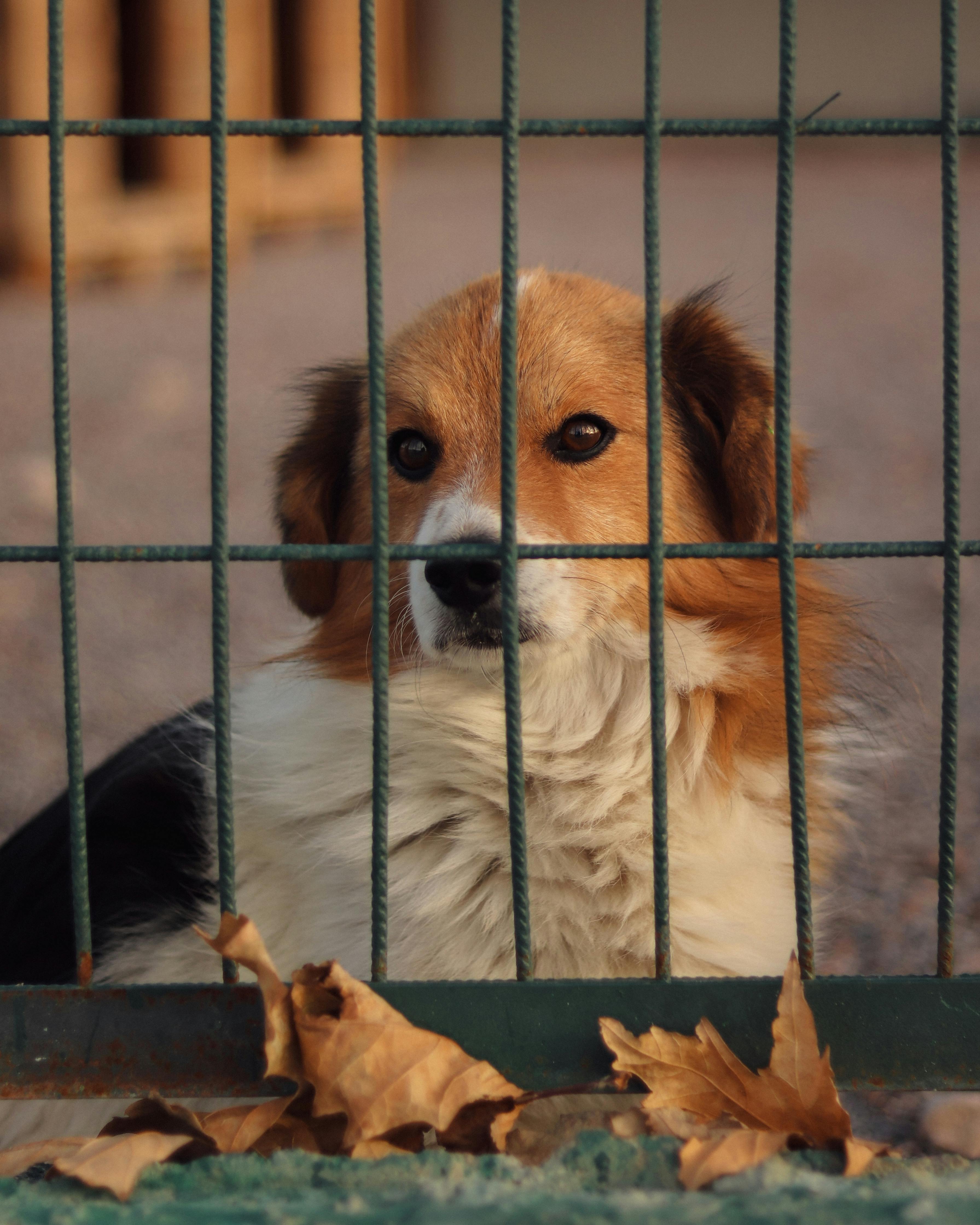If you’ve ever wondered whether it’s safe for your furry friend to snack on almonds, you’re not alone. As a dog owner, I’ve often found myself questioning the safety of various human foods for my beloved pet. In this article, I’ll provide you with the information you need to know about dogs and almonds. From their potential benefits to the potential risks, we’ll explore whether dogs can safely eat these popular nuts. So, let’s find out if dogs can indulge in a handful of almonds or if they should stick to their regular doggie treats!
Understanding Almonds

What are almonds?
Almonds are nuts that are widely consumed and loved by many people all over the world. Almonds are not only delicious but also packed with essential nutrients. These nuts come from the almond tree, scientifically known as Prunus dulcis. Almonds are oval-shaped and have a hard outer shell that needs to be cracked open to access the tasty nut inside.
Nutritional value of almonds
Almonds are incredibly nutritious and offer various health benefits. They are a rich source of dietary fiber, healthy fats, protein, and several vitamins and minerals. Here’s a breakdown of the nutritional content of almonds per 1 ounce (28 grams):
- Calories: 161
- Fat: 14 grams
- Saturated fat: 1 gram
- Monounsaturated fat: 9 grams
- Polyunsaturated fat: 3.5 grams
- Carbohydrates: 6 grams
- Fiber: 3.5 grams
- Sugars: 1 gram
- Protein: 6 grams
- Vitamin E: 37% of the Daily Value (DV)
- Magnesium: 19% of the DV
- Calcium: 8% of the DV
- Iron: 6% of the DV
These nutrient-rich nuts make for a healthy snack option for humans, but what about our furry friends? Can dogs eat almonds too?
Can Dogs Eat Almonds?
Brief on Dog’s Dietary Needs
Before diving into the topic of dogs and almonds, let’s have a quick overview of a dog’s dietary needs. Dogs are predominantly carnivorous animals, meaning their diet mainly consists of meat. Their bodies are adapted to efficiently digest and utilize animal-based protein. Along with protein, dogs also require a balanced intake of fats, carbohydrates, vitamins, and minerals to thrive.
Digestive System of Dogs
Dogs have a different digestive system compared to humans. Their digestive tracts are shorter, allowing for the faster breakdown and absorption of nutrients from animal-based foods. While dogs are known to have a more resilient digestive system, they may struggle to digest certain human foods due to their unique biology.
Dogs and Almonds: Match or Mismatch?
When it comes to dogs and almonds, it is generally not recommended to feed almonds to dogs. While almonds are not toxic to dogs in small quantities, they can pose potential health risks due to their size, shape, and nutrient composition.
Health Risks of Almonds for Dogs
Choking Hazard
One of the primary risks associated with dogs consuming almonds is the choking hazard they pose. Almonds are small and hard, making them easy to get stuck in a dog’s throat. This can lead to choking, especially in smaller dog breeds or dogs prone to swallowing food without properly chewing it.
Digestive Blockages
Almonds, especially whole or unchewed almonds, can also lead to digestive blockages in dogs. The size and shape of almonds can cause them to get lodged in the digestive tract, leading to discomfort, pain, and even the need for surgical intervention to remove the blockage.
Pancreatitis in Dogs
Almonds are high in fat, and consuming large quantities of fatty foods can put dogs at risk of pancreatitis. This condition occurs when the pancreas becomes inflamed and is often accompanied by symptoms such as abdominal pain, vomiting, diarrhea, and loss of appetite.

Almond Toxicity
While almonds are not generally considered toxic to dogs, they contain a substance called amygdalin, which can break down into cyanide when ingested. Cyanide is toxic to both humans and dogs in large amounts, but the concentration of amygdalin in almonds is typically not high enough to cause immediate harm. However, it is still best to avoid feeding almonds to dogs to minimize any potential health risks.
Signs of Almond Toxicity in Dogs
If your dog accidentally consumes almonds or you suspect almond toxicity, there are certain signs to watch out for. These symptoms may not be exclusive to almond ingestion and can vary from dog to dog. It’s important to contact your veterinarian if you notice any of the following signs:
Vomiting and Diarrhea
Digestive upset, including vomiting and diarrhea, can occur as a result of almond consumption. These symptoms may be a sign that your dog’s stomach is not able to tolerate almonds or that there are other underlying issues.
Loss of Appetite
If your dog suddenly shows a lack of interest in food or stops eating altogether, it could be a sign of almond toxicity. Loss of appetite can be a general symptom of various underlying health issues, and it’s crucial to consult with your veterinarian for a proper diagnosis.
Increased Thirst and Urination
Almond consumption can cause increased thirst and subsequent increased urination in dogs. This could be a result of the body trying to metabolize and eliminate any potentially harmful substances.
Lethargy
Dogs experiencing almond toxicity may become lethargic and lack their usual energy levels. If your furry companion is consistently sluggish and showing signs of fatigue, it’s important to seek veterinary attention.
What to Do If Your Dog Eats Almonds
Steps to Take at Home
If you suspect or know that your dog has eaten almonds, it’s essential to take immediate action. Here are some steps you can take at home:
- Stay calm and assess the situation. Determine the quantity of almonds consumed and whether any symptoms have appeared.
- Remove any remaining almonds or almond-containing foods from your dog’s reach to prevent further ingestion.
- Monitor your dog closely for any signs of almond toxicity.
- Provide fresh water to keep your dog hydrated.
- Contact your veterinarian for further guidance and to discuss the situation.
When to Contact the Vet
It is advisable to contact your veterinarian if you suspect almond consumption or notice any unusual symptoms. The veterinarian will be able to advise you on the best course of action based on your specific dog’s health history and the quantity of almonds consumed.
Treatment for Almond Toxicity in Dogs
If almond toxicity is confirmed, the veterinarian may recommend various treatment options based on the severity of the symptoms. Treatment may involve inducing vomiting, administering activated charcoal to absorb any toxins, providing supportive care to alleviate symptoms, and closely monitoring the dog’s condition.
Safe Alternatives to Almonds for Dogs
While almonds may not be suitable for dogs, there are several safe and healthy alternatives to consider. Here are some dog-friendly nuts, fruits, and vegetables that can be incorporated into your dog’s diet:

Dog-friendly Nuts
- Peanuts (unsalted and without shells)
- Cashews (plain and unsalted)
- Pistachios (plain, unsalted, and without shells)
- Walnuts (in moderation, as they are high in omega-3 fatty acids)
Remember to introduce nuts into your dog’s diet slowly and in moderation, as excessive consumption can still lead to digestive issues.
Dog-friendly Fruits
- Apples (remove seeds and core)
- Blueberries
- Watermelon (remove seeds and rind)
- Bananas (in moderation, as they are high in sugar)
Fruits should be given in appropriate portions and as a supplement to a balanced dog food diet.
Dog-friendly Vegetables
- Carrots
- Green beans
- Pumpkin (plain and canned, not pie filling)
- Sweet potatoes (cooked and plain)
Vegetables can be cooked, mashed, or steamed before being served to dogs. Avoid seasoning or adding any spices that may be harmful to dogs.
Dogs and Almond Butter
Is Almond Butter Safe?
If you’re a fan of almond butter, you might wonder if it’s safe for dogs. While almond butter may not pose the same choking hazard as whole almonds, it still contains the same potential risks associated with almonds due to its high fat content. It’s generally recommended to avoid feeding almond butter to dogs due to the possibility of digestive issues and pancreatitis.
Health Benefits of Almond Butter For Dogs
Almond butter does provide some nutritional benefits for dogs. It contains healthy fats, protein, vitamin E, and magnesium. However, it’s essential to note that these nutrients can be obtained from other dog-friendly sources without the potential risks of almond butter.
Serving Almond Butter to Dogs
If you still choose to offer almond butter to your dog, it should be given in moderation and as an occasional treat. Make sure to select a natural and unsweetened almond butter without any added additives, sugars, or salt. Additionally, be mindful of your dog’s caloric intake and consider the high fat content of almond butter when calculating their overall diet.
Dogs and Almond Milk
Is Almond Milk Safe?
Almond milk, like almond butter, may not pose immediate harm to dogs, but it’s generally not recommended as a regular part of their diet. While the lactose content in almond milk is significantly lower than that in cow’s milk, dogs, in general, do not require milk as part of their diet.
Almond Milk and Lactose Intolerance in Dogs
Most adult dogs are lactose intolerant, meaning their bodies lack the enzyme needed to properly digest lactose, the sugar found in milk. Feeding dogs milk or products containing lactose can lead to digestive upset, including bloating, gas, and diarrhea. Even though almond milk contains less lactose, it’s still best to avoid introducing it into your dog’s diet.
Serving Almond Milk to Dogs
If you do choose to offer almond milk to your dog on rare occasions, ensure it is unsweetened, unflavored, and free from any additives or sweeteners that may be harmful to dogs. Additionally, always monitor your dog for any adverse reactions or signs of digestive discomfort.
Precautions for Feeding Dogs Human Foods
Toxic Human Foods for Dogs
It’s important to remember that not all human foods are safe for dogs. Some common foods that can be toxic to dogs include:
- Chocolate
- Grapes and raisins
- Onions and garlic
- Xylitol (found in sugar-free gum and certain food products)
- Avocado
- Alcohol
These are just a few examples, and it’s crucial to research and confirm the safety of any human food before sharing it with your dog.
Feeding Dogs in Moderation
When it comes to feeding dogs human food, moderation is the key. Dogs should primarily be fed a balanced and nutritionally complete dog food diet specifically formulated to meet their unique nutritional needs. Human foods should only be used as occasional treats and should not make up a significant portion of their daily calorie intake.
Make Sure to Avoid Certain Ingredients
When preparing food for your dog or looking for dog-friendly options, be sure to avoid ingredients that are harmful to dogs. These include onions, garlic, excessive salt, seasonings, and any artificial sweeteners. Always read ingredient labels carefully and consult your veterinarian when in doubt.
Conclusion: Can Dogs Eat Almonds?
In conclusion, dogs can technically eat almonds, but it is not recommended due to the potential health risks they can pose. The small size and hard texture of almonds can lead to choking and digestive blockages in dogs. Additionally, the high fat content of almonds can increase the likelihood of pancreatitis in dogs. While almonds are not toxic, it’s always best to err on the side of caution and avoid feeding them to dogs.
If you suspect your dog has consumed almonds or is showing any symptoms of almond toxicity, it’s crucial to seek veterinary attention. Always remember to provide a balanced and nutritionally complete diet for your furry companion, primarily consisting of high-quality dog food. If you want to offer your dog some variety, opt for safe alternatives such as dog-friendly nuts, fruits, and vegetables.
When it comes to our beloved canine friends’ health and well-being, it’s essential to consult with a veterinarian and make informed decisions about their dietary choices. Your veterinarian is the best source of advice when it comes to understanding what foods are safe and appropriate for your individual dog. By prioritizing their health, we can ensure that our furry friends lead happy and healthy lives.




